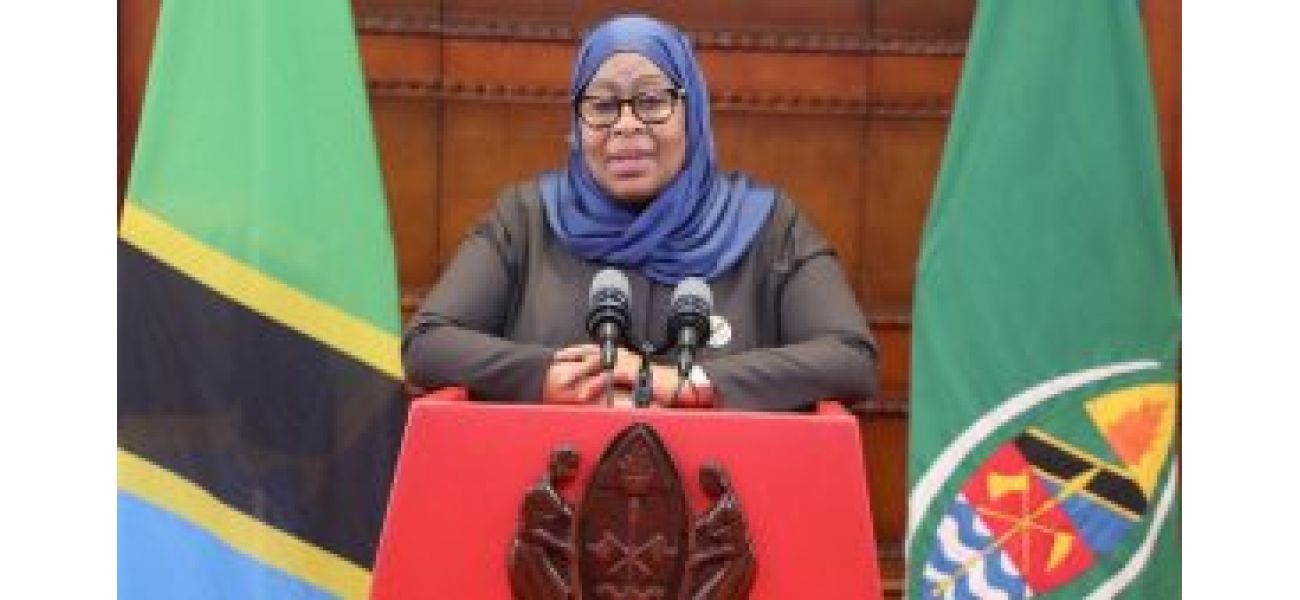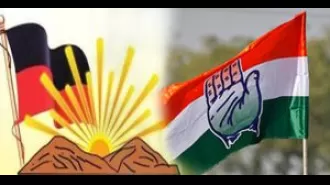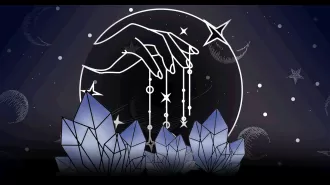Tanzanian people are facing significant emotional and psychological distress.
The new President Mama Samia Suluhu Hassan was sworn in on November 3rd with a grand ceremony, but the absence of the public highlights the failure of democracy in the country.
November 5th 2025.

As President Mama Samia Suluhu Hassan stood on the stage, surrounded by the diplomatic corps, to take her oath of office on November 3rd, there was no shortage of grandeur or ceremony. However, unlike previous swearing-in ceremonies, there was a noticeable absence of the public. This is a sad reflection of the current state of democracy in the African nation, as it struggles to move away from autocracy and towards a democratic form of government.
When Hassan assumed office in 2001, following in the footsteps of her autocratic predecessor John Magafuli, there was a newfound sense of hope for a more democratic government. Sadly, Tanzania has instead fallen into a more oppressive form of autocratic rule, with reports of extrajudicial killings, violent suppression of opposition activists, and censorship of the media becoming the norm. The main challengers to Hassan's presidency, Tundu Lissu of the largest opposition party, Chadema, and Luhaga Mpina of ACT-Wazalendo, were barred from running, effectively eliminating any real threat to her position. Other presidential candidates lacked significant political support and were merely a shadow of a presence. The end result was a mockery of democracy, with Hassan securing 98% of the votes.
For an election to be considered credible, the electoral procedures and processes must be certain, while the outcome should be uncertain. In Tanzania, the opposite has been proven true. It was widely known that Hassan would be declared the winner even before the votes were cast. It is difficult to get a clear picture of the situation in Tanzania, as the government has imposed a nationwide internet shutdown. However, videos shared by human rights groups show disturbing scenes of bodies piled on the streets and injured protesters with gunshot wounds. Unconfirmed reports suggest that over 1,000 people have been killed in election-related violence.
As is often the case with governments of this nature, the Tanzanian authorities have denied any excessive use of force. Tundu Lissu, before his arrest in April, had been holding rallies with the slogan "No reforms, no elections." His American lawyer, Robert Amsterdam, has stated that Lissu, who miraculously survived being shot 16 times in a 2017 assassination attempt, could face the death penalty if convicted of treason. He is currently being held in solitary confinement in jail. The irony is that when Hassan first took over from authoritarian Magufuli, who was known as "the Bulldozer," there was hope that Tanzania was heading towards a more democratic path. Hassan even made efforts to bring about change, including lifting bans on political rallies, repealing repressive media laws, and releasing Lissu's predecessor from prison. However, the 65-year-old leader, Tanzania's first female president, has proven to be worse than her predecessor. Many believe that her son, Abdul Halim Hafidh Ameir, is behind the violent crackdown, following a pattern seen in several other Asian countries where leaders abuse their power and allow their children to have a say in matters beyond their constitutional authority.
The current situation in Tanzania has prompted Pope Leo to speak out from the Vatican, calling for an end to the post-election violence. He has urged for peaceful dialogue instead. Sadly, the African Union has not condemned the election, and many African heads of state attended Hassan's inauguration. The fact that schools remain closed, public transport is halted, and there is a complete internet blackout only adds to the evidence of the regime's heavy-handedness. Tanzania is just one of several African countries that have experienced disputed elections this year, leading to unrest.
Last month, Cameroon's 92-year-old President Paul Biya was re-elected for an eighth term, while Ivory Coast's 83-year-old Alassane Ouattara won a fourth term after barring key opposition figures from running. Some may argue that international pressure needs to be placed on President Hassan to protect the hope of democracy in Africa. However, the truth is that it is the responsibility of the people to uphold their institutions and prevent barbaric rulers from taking advantage of the guise of democracy. These institutions are the key to protecting the common citizen from oppressive leaders.
When Hassan assumed office in 2001, following in the footsteps of her autocratic predecessor John Magafuli, there was a newfound sense of hope for a more democratic government. Sadly, Tanzania has instead fallen into a more oppressive form of autocratic rule, with reports of extrajudicial killings, violent suppression of opposition activists, and censorship of the media becoming the norm. The main challengers to Hassan's presidency, Tundu Lissu of the largest opposition party, Chadema, and Luhaga Mpina of ACT-Wazalendo, were barred from running, effectively eliminating any real threat to her position. Other presidential candidates lacked significant political support and were merely a shadow of a presence. The end result was a mockery of democracy, with Hassan securing 98% of the votes.
For an election to be considered credible, the electoral procedures and processes must be certain, while the outcome should be uncertain. In Tanzania, the opposite has been proven true. It was widely known that Hassan would be declared the winner even before the votes were cast. It is difficult to get a clear picture of the situation in Tanzania, as the government has imposed a nationwide internet shutdown. However, videos shared by human rights groups show disturbing scenes of bodies piled on the streets and injured protesters with gunshot wounds. Unconfirmed reports suggest that over 1,000 people have been killed in election-related violence.
As is often the case with governments of this nature, the Tanzanian authorities have denied any excessive use of force. Tundu Lissu, before his arrest in April, had been holding rallies with the slogan "No reforms, no elections." His American lawyer, Robert Amsterdam, has stated that Lissu, who miraculously survived being shot 16 times in a 2017 assassination attempt, could face the death penalty if convicted of treason. He is currently being held in solitary confinement in jail. The irony is that when Hassan first took over from authoritarian Magufuli, who was known as "the Bulldozer," there was hope that Tanzania was heading towards a more democratic path. Hassan even made efforts to bring about change, including lifting bans on political rallies, repealing repressive media laws, and releasing Lissu's predecessor from prison. However, the 65-year-old leader, Tanzania's first female president, has proven to be worse than her predecessor. Many believe that her son, Abdul Halim Hafidh Ameir, is behind the violent crackdown, following a pattern seen in several other Asian countries where leaders abuse their power and allow their children to have a say in matters beyond their constitutional authority.
The current situation in Tanzania has prompted Pope Leo to speak out from the Vatican, calling for an end to the post-election violence. He has urged for peaceful dialogue instead. Sadly, the African Union has not condemned the election, and many African heads of state attended Hassan's inauguration. The fact that schools remain closed, public transport is halted, and there is a complete internet blackout only adds to the evidence of the regime's heavy-handedness. Tanzania is just one of several African countries that have experienced disputed elections this year, leading to unrest.
Last month, Cameroon's 92-year-old President Paul Biya was re-elected for an eighth term, while Ivory Coast's 83-year-old Alassane Ouattara won a fourth term after barring key opposition figures from running. Some may argue that international pressure needs to be placed on President Hassan to protect the hope of democracy in Africa. However, the truth is that it is the responsibility of the people to uphold their institutions and prevent barbaric rulers from taking advantage of the guise of democracy. These institutions are the key to protecting the common citizen from oppressive leaders.
[This article has been trending online recently and has been generated with AI. Your feed is customized.]
[Generative AI is experimental.]
0
0
Submit Comment





